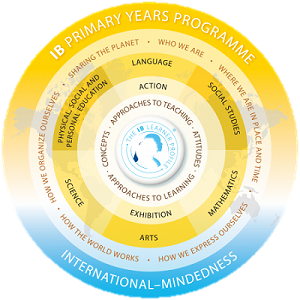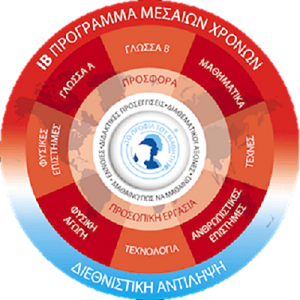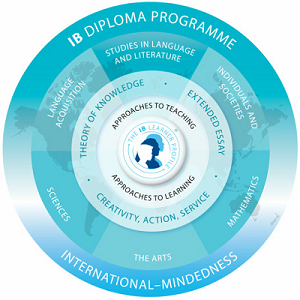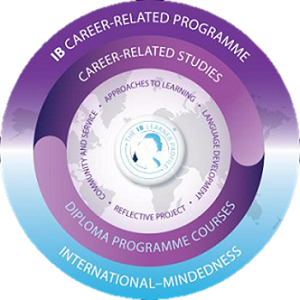International Baccalaureate (IB): Syllabus, Curriculum, Salient Features and Results

About IB Board
The International Baccalaureate or IB is as the name suggests an International Board for Education active in India as well as many other countries around the world. The Board aims at teaching the students how to think critically and independently and also how to query with care and logic. The Board operates through the help of IB teachers and volunteers in almost 5000 schools globally spread over 150 countries. IB strives to improve the quality of education around the world. It offers four different programs for students of the age of 3-19.
Features of IB Board
- IB not just focuses on the local aspects of the education syllabus but the global aspects as well
- Students develop as education seekers at a global level rather than being confined to their local issues
- The students learn to think out of the box and develop an attitude to question everything and challenge assumptions
- IB works independently, without the local and national administration with its education being driven by its own research
- The students not only learn the concepts and thinking taught them at school, but also develop the essential skill i.e. to question and they learn how to learn
- As such, the students are able to understand what they are interested in and how they can research the various questions which arise in their minds and learn it themselves
- The curriculum includes values which make the students not just a part of their local community, but of the world as well
- The students develop practices to do research at their own level and this skill helps them in their higher studies
Curriculum of IB Board
The curriculum offers 4 different programmes for students of different age groups. They are discussed as follows:
- Primary Years Programme: This programme aims at teaching the students how to learn and how to love learning. Doing so ensures that the students genuine liking in what they are doing rather than learning just for the sake of marks. It is offered to students between the age group of 3-12 years. The curriculum is adaptable to any state and national standards and is guided by 6 transdisciplinary themes. The curriculum teaches the most basic but the most important aspects of the life of the students as lifelong It engages the students with the path of learning and imparts all the basic skills which the students will be requiring to emerge fruitful in their path of life. The students learn how they can take control of their learning and guide their flow as per their wish and requirements rather than their course-book being the master of their life.

- Middle Years Programme: This is a challenging framework to encourage the students in making connections with studies and the real Aimed at students in the age group of 11-16 years, the programme spans for 5 years and can also be taken in some abbreviated formats of 2, 3 or 4 years. Completing the Middle Years Programme makes you not just eligible but also worthy enough to take the Diploma Programme. The carefully designed subject-group flexibility allows meeting local requirements and personal education goals.

- Diploma Programme: The Diploma programme for students of the age group of 16-19 is designed for students who have the depth of knowledge required to flourish in the field selected. The programme consists of 6 subject groups along with the DP core (consisting of Theory of Knowledge, creativity, activity, service).

- Career-Related Programme: The Career-Related Programme is quite a unique blend of the Diploma Programme and the essential skills and education required to develop one’s career. In the Career-Related Programme, the students take up at least 2 Diploma Programme courses and Core components of the Career-Related Programme. While the Diploma Programme courses enhance the theoretical knowledge of the subjects and skills for the career, the Core provides the required personal and professional skills and the intellect required for the career path and still being able to be a life-long learner. It teaches the students on how to work in collaboration as well as independently on a chosen goal.

Assessment System of IB Board
The assessments of the students are done on the standards of the international level. The assessment tests the extent to which the students have mastered the advanced skills of the academic curriculum. They are assessed on the skills of analyzing and presenting the learned/gathered information, constructing and evaluating arguments, creatively solving problems, retaining the acquired information, applying the standard methods. The assessment is done by checking the performance on a set standard and not by competitive marking among the students. IB uses both internal and external assessment methods. The external assessment includes essays, short-response, data-response, text-response and case-study questions. The internal assessment includes the oral work in languages along with fieldwork in subjects like geography, laboratory work in science, investigation work in mathematics and the overall artistic performance. The end results of the course are graded on a scale of 1 (lowest) and 7 (highest). The reflective projects within a course are graded from A to E, A being the highest. The IB assures the quality of its schools by making them participate in an ongoing process of review and development.
IB Board Results
There are two types of Examination Sessions for the International Baccalaureate (IB) Diploma Programme (DP). These are in May and November.
The result of May Session will be declared on 5 July and the result of November session, results are issued on 3 January, in the year following the exam.
Receiving Grades
- Students can access their own results via the IB candidate results website
- Students can check their results one day after the result is announced: on 6 July for the May session and 6 January for the November session.
- In each examination session, about 80% of Diploma Programme (DP) students are awarded the diploma.
- You can also read about grading in each DP subject group
Requesting that Exams are Remarked
After the results have been issued, schools can request re-marks for particular students if they feel the result is undeserved. Schools can also receive a range of different types of feedback on their students' performance.









